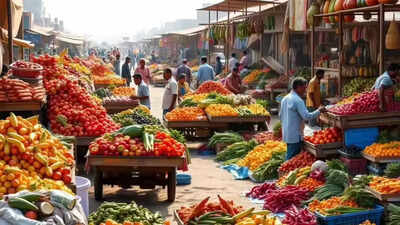NEW DELHI: With inflation at a record low of 0.3%, the food ministry has proposed lifting of export restrictions on wheat products such as aata, maida and sooji after a gap of nearly three-and-a-half years. In a letter to the commerce department, it has suggested considering allowing such exports of up to one million tonne (MT).Referring to the representation of Roller Flour Millers’ Federation of India to allow export of wheat products based on the “prevailing surplus and strong production outlook”, the ministry has sought “necessary action”.Sources said the Food Corporation of India (FCI) commenced the open market sale scheme (OMSS) of wheat for bulk buyers such as flour millers and this got a lukewarm response with around 70,000 tonne sold through e-action against the offer 2 lakh tonnes at Rs 2,550 per quintal. They added that this indicates enough wheat availability in the market and even the wholesale prices have dropped by around 12% compared to last year.At present, FCI has around 30.5 MT of wheat stock against the buffer requirement of 20.5 MT for Jan 1, 2026.Navneet Chitlangia, president of Roller Flour Millers’ Federation, said India has witnessed a bumper wheat harvest this season, and with a favourable monsoon, they anticipate yet another excellent harvest in the coming season. “In view of the robust domestic production, we have requested govt to lift the restrictions on wheat product exports so that India may reclaim its traditional markets across the globe,” he said.Before the export ban of wheat products, India used to send shipments of flour, maida and sooji and other products to Africa, Gulf and south Asian countries. In May, a ban was imposed on exports of wheat and its products due to concerns over domestic food security, drop in production, and rising inflation.








